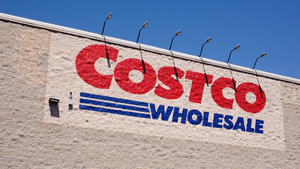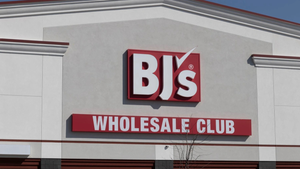Sprouts Takes Aim at Mid-AtlanticSprouts Takes Aim at Mid-Atlantic
‘No one has seen anything like what we do,’ president says, reviewing strong Q4 results. Conventional competitors that haven't kept up investment in facilities and trends could be vulnerable.
Sprouts Farmers Market next month will enter the mid-Atlantic states for the first time, and officials like what they see there: high spending and dense populations interested in healthy eating, but largely served by conventional supermarkets.
“We are a highly differentiated model, and no one in the mid-Atlantic has seen anything like what we do,” said Jim Nielsen, president and COO of the fast-growing Phoenix-based retailer, in a conference call this week. “The layout, the assortment, the value proposition that we put together [are] all anchored around a different level of service, a knowledgeable base service. So [we’re] very optimistic about the mid-Atlantic and how we'll perform.”
Sprouts’ first store in the mid-Atlantic is scheduled to open in Ellicott City, Md., on March 14. The company expects to cross the Mason-Dixon Line by the end of the year with its first unit in Pennsylvania as part of a 30-store expansion in 2018. Like other alternative formats such as hard discounters, the farmers market-style store owes its success in part to having an established conventional base to disrupt. In the mid-Atlantic, Sprouts officials see a variety of candidates including some that, in their view, haven’t kept up with investment and consumer eating trends. Its new neighbors in Ellicott City will include Giant Food, Walmart and Safeway.
“Any time we see a wide range of conventional operators [with a] range of variability in the operations, experience and reinvestment into the business … when we see a wide range of dollars being spent where the stores are not trend-driven, customer-driven [and] what the customers want today, those excite us,” CEO Amin Maredia said.
Those remarks came Thursday as Sprouts reviewed financial results for Q4 and the fiscal year ended Dec. 31. In the quarter, Sprouts grew sales by 16% to $1.1 billion and comparable-store sales by 4.6% despite flat inflation. Higher comps, while lapping a period of high promotions a year ago, helped gross profit for the quarter increase 17% to $324 million, or 28.4% margins, up 20 basis points from last year’s Q4. The timing of the New Year’s holiday gave quarterly sales a slight boost, officials added.
For the fiscal year, sales grew 15% to $4.66 billion and comps increased by 2.9%.
Maredia attributed the strong results to 30% annual sales growth in private label, as well as expanding fresh deli sales, improving productivity and worker retention, and introducing new marketing, including a newly launched website and mobile application.
Sprouts said it would devote about one-third of the anticipated benefits of tax reform—or about $10 million—to additional wage, benefit and training initiatives. Officials said this would get the company ahead of anticipated minimum wage raises due in 2019, as well as help retain workers, which will aid expansion by providing experienced staff.
Sprouts declined comment on the status of its delivery partnership with Amazon Prime Now, but said it anticipated that a more recently announced delivery deal with Instacart would reach all Sprouts locations this year.
Maredia said Sprouts’ relative lack of densely located stores was a cost advantage of offering delivery in extending store trade areas without cannibalizing trips.
“This is exciting for us because it fills in gaps naturally without opening stores through trade areas,” Maredia said. "Because of that, we view this as an opportunity and not a cost burden that others may view it as."
He added, however, that delivery remains a small percentage of the Sprouts sales picture. “I think that the fresh home delivery business is not moving at the speed as what many out there are talking about,” he said.
About the Author
You May Also Like






